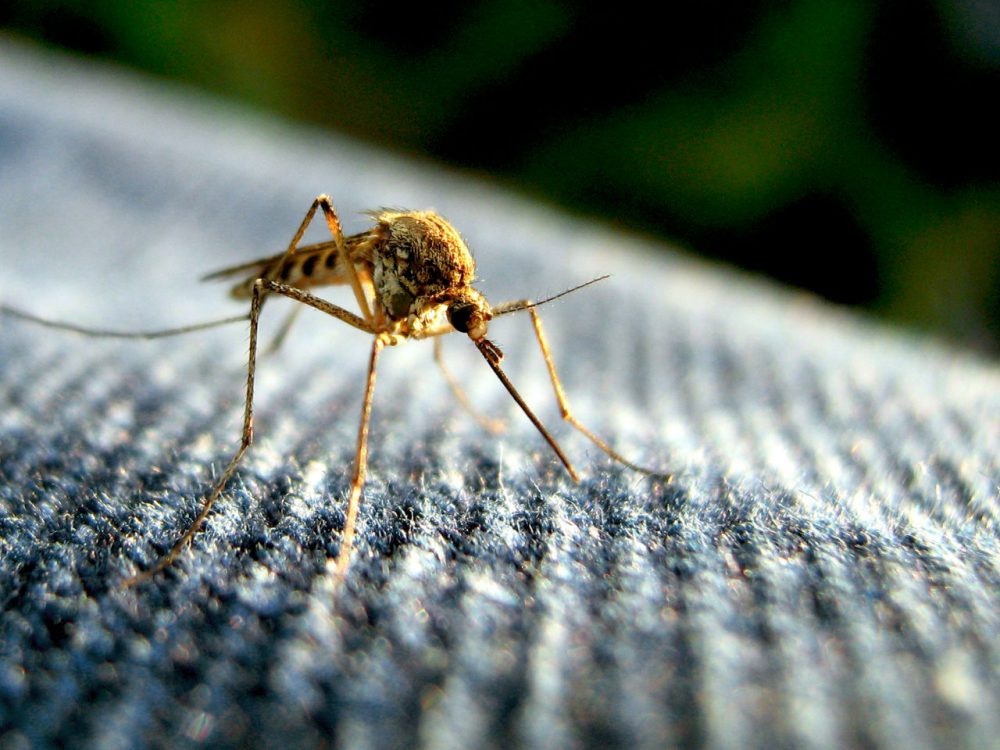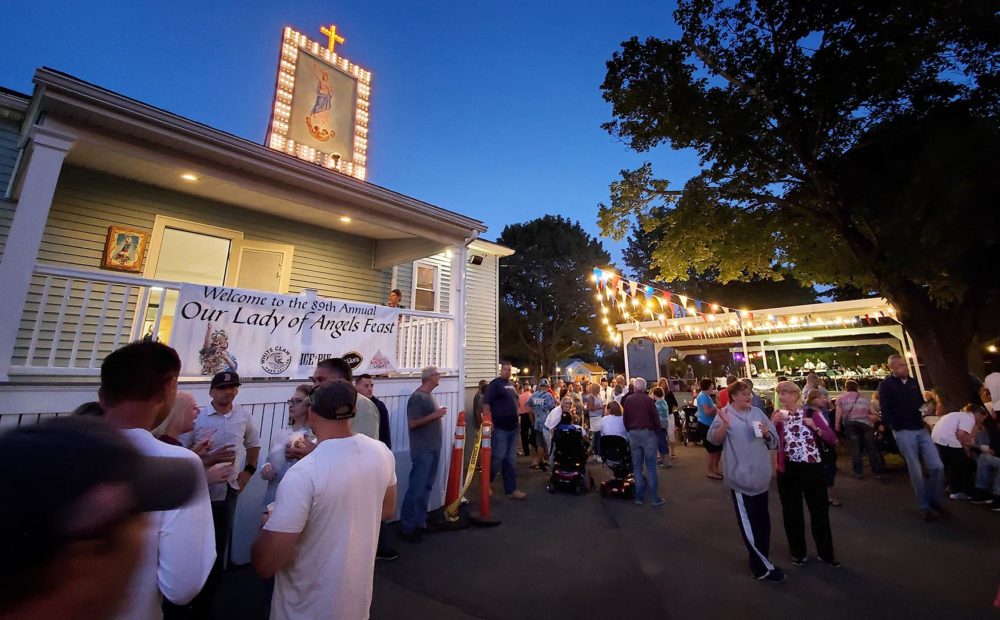Advertisement
Citronella Candles And Self-Imposed Curfews: Living With The Threat Of EEE

Roughly 15 minutes away from the seaside town of Fairhaven sprawls one of the state’s widest and wildest wetlands. Acushnet Cedar Swamp, so-named for its slender, faintly blue evergreens, is a national natural landmark, but its still waters also make it an ideal breeding ground for mosquitoes.
Wetlands like these are plentiful in the region and the risks of Eastern Equine Encephalitis virus — or EEE — and other mosquito-borne illnesses are historically highest here, according to state epidemiologist Catherine Brown.
Though, she said, EEE is extremely rare.
"I remember in 2012, which was our worst year since the '70s, there were seven human cases," Brown says.
But it does come around every year, and local residents are used to hearing health department warnings. Signs reading “Warning: High Risk For EEE Virus” were posted along festival grounds in Fairhaven last Saturday.
“This is not new,” said Rick Hinkley, a 74-year-old resident of nearby New Bedford. “We never actually worried about [EEE] until this year.”
That changed on Aug. 25, when Fairhaven resident Laurie Sylvia died after contracting EEE. Her death shook the community.
“When somebody dies, you know, it should open your eyes. It did for us,” Hinkley said. He tugged once on a black leather motorcycle vest with “Vietnam Veteran” embroidered on it. “I wouldn’t go sit outside at night now."
Many residents said they started taking the threat more seriously in the days following Sylvia’s death. Bars and restaurants with outdoor seating light citronella candles, and residents say that many popular businesses are empty after the sun goes down.
“You hear about West Nile virus, EEE, and you think it’s never going to happen. Then someone who lives the street over from you gets it, and you’re like, ‘oh,’ ” said Mark LaFreniere, a 26-year-old flight attendant from Fairhaven.
Advertisement
LaFreniere said he started changing his daily routine to avoid being outside from dusk to dawn, when mosquitoes that can transmit EEE virus are most active.
“I used to take [my dog] out for a walk around sunset time. I haven’t been doing that,” he said. Now when he takes his dog out, LaFreniere mists both her and himself with bug repellent.
Local government and organizations have been taking similar measures, said Daniel Shea, a health inspector for Fairhaven. County authorities have been spraying the area for mosquitoes twice a week since June, Shea said.
“We do what we always do. When [the area’s risk] became critical, we put a restriction on any outdoor events that were taking place after dark in public places,” he said. “The police are now patrolling public places, any parks and all that, to push people out [after dark.]”
Many sports games and practices that normally take place outdoors after sunset have been rescheduled, Shea said, though some events haven’t changed.
“Unfortunately, we can’t control private areas,” he said.
Fairhaven’s Our Lady of Angels feast, often called the "biggest little feast," took place on private grounds last weekend and continued until midnight on Saturday and Sunday, and until 10 p.m. on Monday.

“It was a tragedy what happened to Ms. Sylvia,” said Rev. David Lupo of St. Mary’s Parish, which organizes the festival.
After discussing whether to cancel or reschedule the event, organizers decided to spray the grounds ahead of the festival and keep the after-dark hours.
“We could be paralyzed by fear or, you know, we could move ahead with our plans. We’re just choosing this year to move ahead with our plans,” he said. “I guess we’re Fairhaven Strong.”
That’s an attitude shared by others at the feast. Susan Aiello of Fairhaven said she and her friends planned to stay well after dark and weren’t too worried about mosquitoes.
"I mean, if I start getting bit, I might just go to my car and spray myself, because I do have bug spray," she said. “I mean, you have to live."
The sun was falling as a marching band played through the festival grounds, and the sky began to blush.
At least one reporter got bit by a mosquito, but the feast was still packed.
This segment aired on September 4, 2019.
